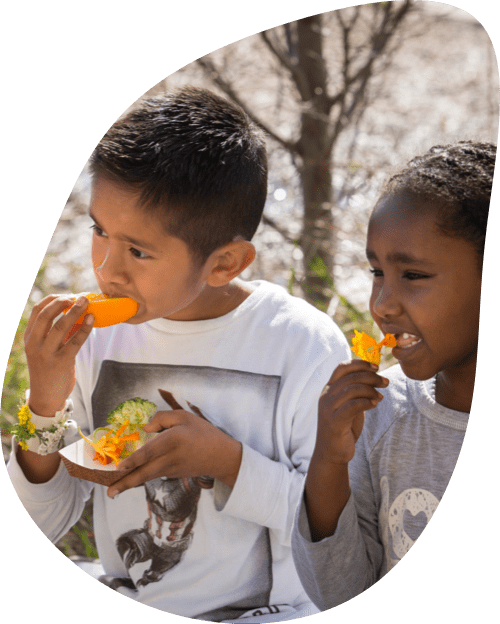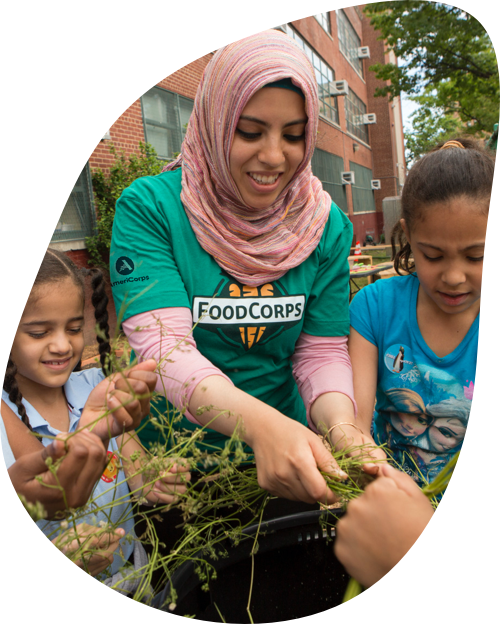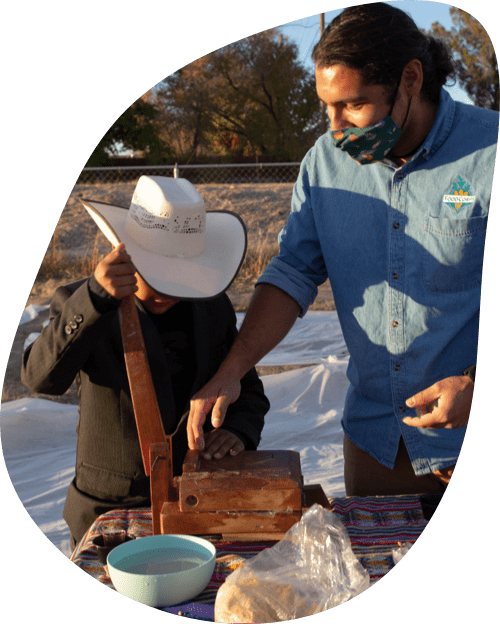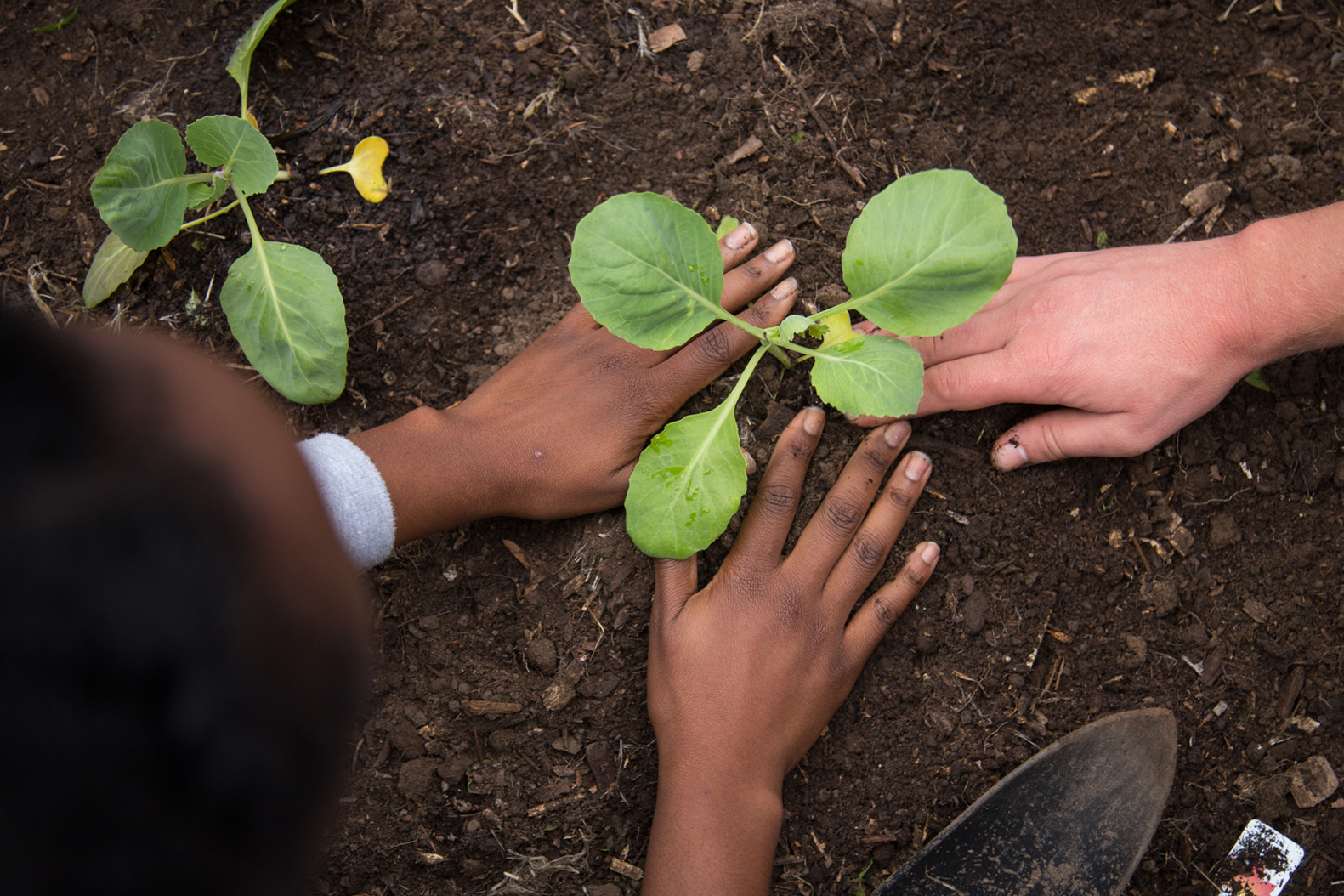DEI in Action: Our Anti-Racism Strategy
A Theory of Change for Justice Building
Our anti-racism strategy holds justice at the center. We know that food inequity is rooted in racism, and that we must radically reimagine the systems that uphold it. We prioritize humanity, efficacy, and accountability in our work, and we strive for a culture where all people feel seen, heard, and empowered. And we center Black voices and experiences with intention—it’s how we dismantle anti-Blackness at the root of unjust systems.
What will be different as a result? We hope that FoodCorps will contribute to a world where individuals feel psychologically safe and comfortable as their whole selves; where communities have the tools they need to advocate for their collective well-being; where our partnerships reflect culturally relevant programming and data-driven strategies, including DEI; and, ultimately, where children are nourished, celebrated, and well. Here are the key ways we hope to effect change.















